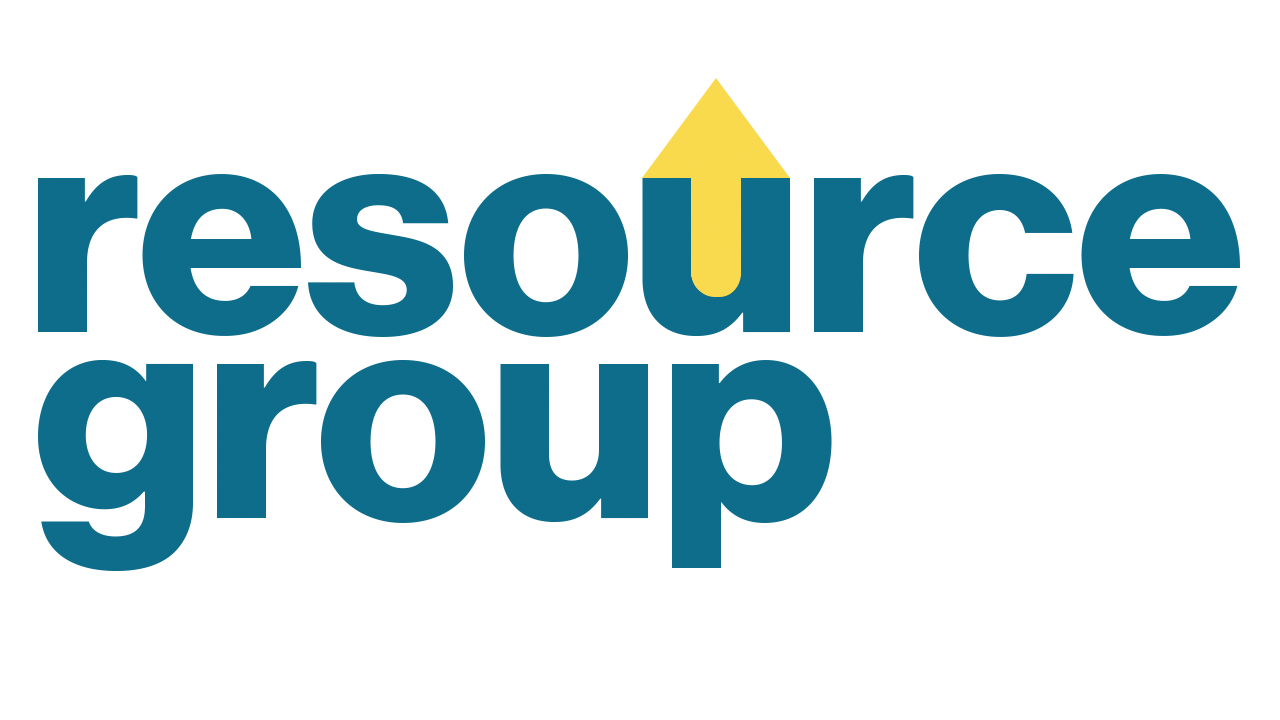
By: The Resource Group Team
Merriam-Webster defines relapse as: a recurrence of symptoms of a disease after a period of improvement. However, I feel that is too broad of a definition on what Relapse is. So I asked Marie Collins, a psychotherapist, and the Resource Connect Program Director, with Resource Group, what relapse is “…the act of going back to a behavior that you had previously stopped. Relapse is a process, not a single event, which means that relapse starts well before our clients pick up a drink or drug. It is important for our clients to understand this, so they can identify their personal warning signs and triggers before they get to that breaking point”
Relapse is something that anyone going through sobriety can experience. It is nothing to be ashamed of. A change in life is hard, and stopping an activity you did every day, multiple times a day, is hard and takes practice. You know the cliché nothing worth having comes easy. That’s what sobriety is, something worth having and it won’t come easy.
Signs of Relapse
Most common signs of relapse are behavior shifts. This can be anything from suddenly missing groups or not showing up on time, to avoiding friends and everyday activities that they enjoyed doing. Another is altered mood, someone who is normally upbeat suddenly turns angry, or rude towards friends and family when they are normally respectful and kind. Engaging in risky behaviors can be a sign if they don’t normally partake in risky behavior. If the person is a daredevil or a stuntman, risky behavior isn’t going to be a big warning sign.
Overconfidence is another sign; it can turn into complacency. You think you are in control of your sobriety but that doesn’t mean you don’t need the support, everyone needs support. Relying on others isn’t a sign of weakness, it’s a sign of strength. Complacency is a dangerous place to be especially in early recovery.
A list of signs you or someone you love could be heading towards a relapse.
1.) Apprehension: The lack of confidence in your own ability to remain drug free. This can happen when you are tempted and have difficulty turning away from that temptation.
2.) Denial: Being unable to recognize and tell others what you are thinking and feeling. This can happen when you yourself are not even able to recognize that you are falling back into an addictive behavior.
3.) Defensiveness: Defending yourself when talking about your problems. This can happen when you don’t want to accept that you are returning to your former addiction.
4.) Avoidance: This involves not wanting anything that can cause painful and uncomfortable feelings to come back. You may avoid people or places that will force you to engage in introspection.
5.) Crisis: You feel overwhelmed and unable to handle your life. You may feel like every time you deal with a life problem; more problems appear.
6.) Mindlessness: You are just going through the motions of life, not really engaging with the people around you.
7.) Indolence: You no longer follow through with your plans for healthy living. This can happen when you feel they are too difficult or are tired of the discipline of abstaining from drugs.
8.) Irritation: This involves being quick to lose your temper, and over-reacting to minor slights. This can happen as a result of your own frustration with yourself.
9.) Depression: The most common symptoms of depression are irregular sleeping and eating habits, a loss of interests in things that you used to enjoy, lethargy, and a loss of daily structure. You may feel that substance abuse is the only way to end the depression.
10.) Indifference: This could manifest as an “I don’t care attitude,” not attending meetings, and missing work/appointments. You may feel as though being ineffective in your ability to remain drug free means you are an ineffective person.
11.) Rejection: When the people who care about you reach out and express concern, you reject their help.
12.) Association: Being around people engaged in drug use and other self-destructive behaviors. This might be both a warning sign and a cause of relapse.
13.) Lying: You find yourself explaining away the truth of your situation and instead believing lies about yourself.
What to be Weary of When Sober
Addiction thrives in isolation and when someone feels cut off from their support network it makes it more difficult to maintain sobriety. How are you doing during quarantine? The pandemic is a time where a lot of sober people may feel the most helpless. They have become isolated and bored. Turning to their old habits can be a way to forget the loneliness and cure the boredom. If this is happening with you, make sure you reach out to your support system. If you are a loved one seeing a sober person go through this, reach out. We all need someone there for us.
Getting a new job or making more money makes drugs and alcohol more attainable. This brings on inner conflict. The thought of “I have extra money” can bring some bad habits back into a person’s life. Try to be mindful of how you handle your money. Maybe speak with a financial advisor to help set up a budget to keep you from wanting to spend money on temptation.
Negative family and friends can tempt you to fall back into old habits. Be mindful of the people you keep around. Toxic people can come in the form of a stranger, friend, family, colleague, significant other, etc. and while some may not realize they are toxic, that doesn’t mean they have a right to stay in your life. Especially, after you have told them how their actions affect you.
Keep an eye on your mental health. You can’t avoid difficult feelings, but you can avoid the drugs and alcohol that numb those feelings. When poor mental health begins to surface in the recovery process, it can lead back to substances. Having an individual therapist or going to group therapy can help you dive into your emotions.
Having family and friends join a Family and Friends Program can be a good way for your support system learn how they can best help you. Families can sometimes feel like they have no part in their loved one’s addiction but they are always a welcome contribution to the addiction process. Feelings and memories will come up in group and individual therapy that will help you process difficult times. Remember you don’t have to do it alone!
Collins says “Relapse is a part of the process and an uncomfortable idea to fully grasp and accept. To expect someone’s recovery journey is going to be easy is not a good way to think of it. If your loved ones are struggling, we’ll notice it and make sure they’re getting help. If they need increase in treatment, we can recommend other programs that might help. If you are really struggling with the fear of relapsing, seek out others outside support groups like, family, individual therapists, or lecture series. Sheppard-Pratt has a lecture series that’s free.” She say’s “It’s important to lean into the discomfort of the recovery process and relapse can be a part of that process.”
Coping Skills
If you feel you or a loved one are going to relapse, Collins shares some ways to cope. She suggests Journaling, writing down your feelings or events from the day can help stay on track and measure how you are coping during early sober process. Mindfulness is described as a mental state achieved by focusing one’s awareness on the present moment, while calmly acknowledging and accepting one’s feelings, thoughts, and bodily sensations, one way to achieve mindfulness is meditating. Exercising or going for a walk, take at least 20 minutes a day to do your favorite exercise or take your dog for a walk. She also shared an acronym to remember to do in an anxious moment.
T – change the Temperature
I – Intense exercise
P – Paced breathing, yoga breath
P – Progressive muscle relaxation. Purposeful tensing and relaxing of the body. Body meditation.
Collins also suggested writing down the skills that work best for you. If you know going for a run every morning helps keep you stay centered, write it down, so you are more likely to remember to complete this task every day.
What to Avoid
Avoid toxic relationships, this doesn’t only mean people you used to drink with, but people who are not helping you stay sober or people who don’t appreciate your process of staying sober. Avoid places you would go to find your substance, such as bars, areas of the city that you used to frequent as a user, friend’s house you used to visit and get high or drunk.
Do not create unrealistic goals for yourself. Creating extravagant goals can make you feel down. Not Everything is going to be perfect. Managing and setting realistic expectations of what the recovery process will be can help you stay on track.
Avoid getting into a new relationship! All your time and energy end up going towards this new relationship and none, or very little, of it goes in your recovery. Relationships are important, but you are even more important. Remember to always put yourself first.
Create a SMART goal (specific, measurable, attainable, realistic, timebound) and figure out what makes sense for you right now. Be specific about your goal. Not that you solely want to get sober but how you will go about getting and staying sober. Try and make it measurable, all this means is include tasks that allow you to track your goal. Make sure your end goals are attainable and realistic.
Please, do not put your recovery on the back burner at any time. If you put your recovery to the side, you’re not putting your values first. And you are, definitely, not putting yourself first. I will reiterate again to put yourself and your needs first. And if you find yourself dealing with someone who does not want to accept the fact that you need to do what is best for you, then it is ok to step away from that person.
What to Remember While Trying to Stay Sober
Don’t put all your eggs in one basket. Don’t only rely on your sober influencers. Don’t only rely on one IOP program to help you. There must be other avenues and range of supportive entities to support your recovery process. Sticking with only one person, one group or one activity might be detrimental to your experiences and can lead to unrealistic expectations. Always consider the steps you take towards recovery as an investment. Collins said this about Resource Connects IOP program, which is a time investment of 4 days per week of groups. “You don’t spend 4 days a week here for you to not envision this as an investment”
Make sure you keep flexible thinking. Relapse isn’t a single event. It starts before you pick up that drink or that drug. Find out all the events, circumstances, or triggers that lead to you heading back to substance use. Make sure you address the decent into relapse. Find other ways to cope with your triggers instead of substance use. And always remember that you are worth sobriety!
DISCLAIMER
The information, including but not limited to, text, graphics, images and other material contained on this website are for informational purposes only. No material on this site is intended to be a substitute for professional medical advice, diagnosis, or treatment. Always seek the advice of your physician or other qualified healthcare provider with any questions you may have regarding a medical condition or treatment and before undertaking a new health care regimen, and never disregard professional medical advice or delay in seeking it because of something you have read on this website.






